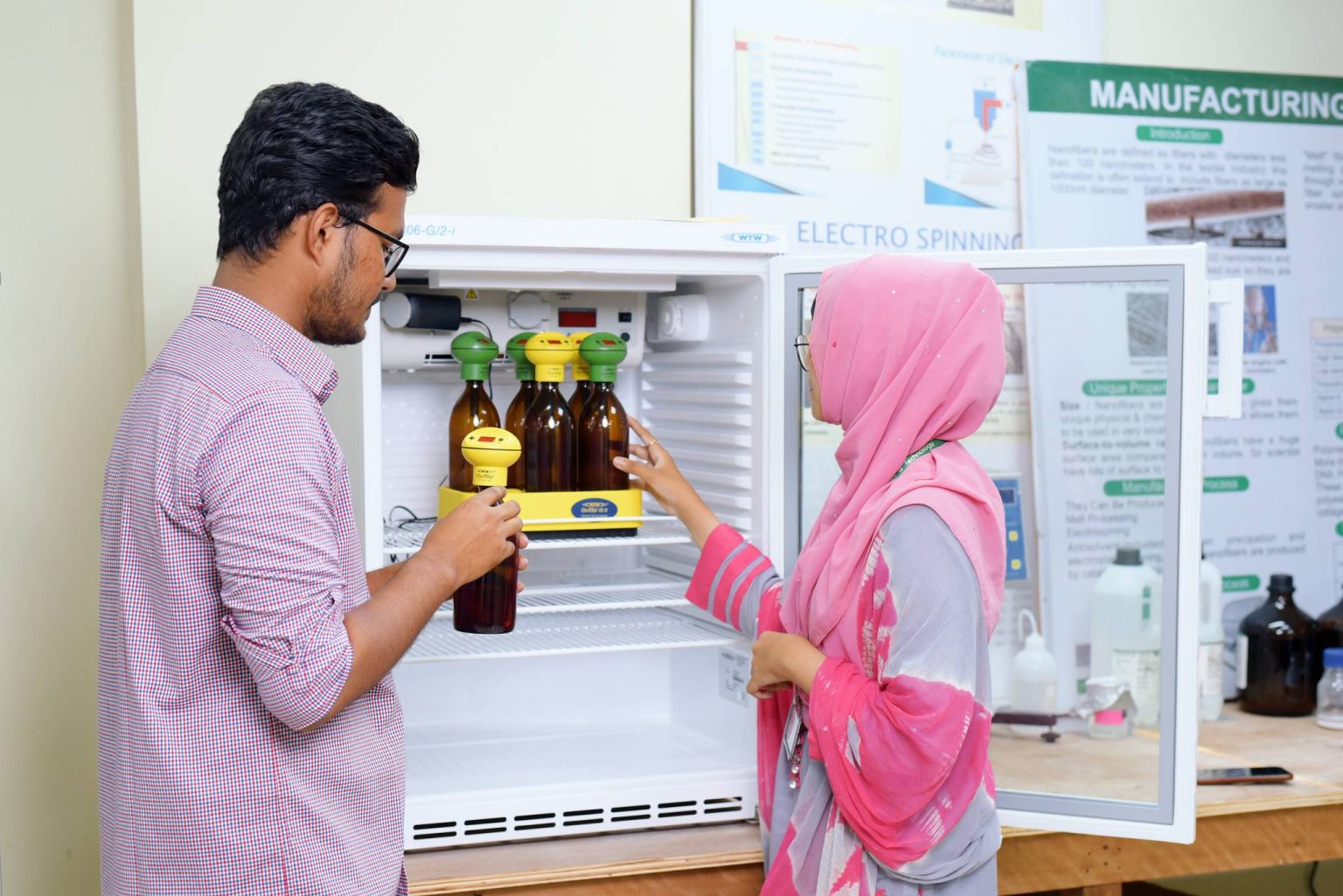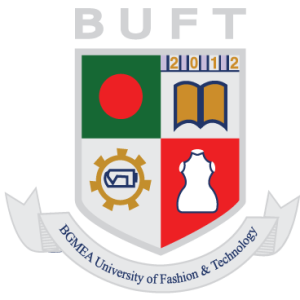The department of Textile Engineering and Management, one of the most emerging textile branches, has launched undergraduate program as a response to the escalating demand of devoted professionals in the arena of textile production, textile design, textile goods & machinery merchandising. The program is constructed to develop a strong technically sound textile engineer with quintessential managerial skills that provide a strong base of his future engineering career. The program is flexible enough to tailor the specific career goals of individuals according to the industrial need.
M 2: Impart problem solving and innovative mindset among the students to seek and utilize the opportunities to improve continuously in every aspect.
Exploration – in innovation, manegerial and technological changes.
Responsibility – for individual actions and service to society.
Stewardship – in sustainable textile sector.
Leadership – in team building and project management.
Excellence – in managing textile value chain.
The study area in textile engineering delivers fundamental knowledge and insights extending from material design theory via textile manufacturing, textile processing, finishing technologies through quality management and quality assessment of textile materials. Students acquire a particular knowledge of the relevant technologies used in fiber production and processing, yarn manufacturing engineering, weaving, knitting, narrow fabrics, wet processing engineering, finishing and technical textiles.

The educational objectives of B.Sc. in Textile Engineering & Management program are as follows:
PEO 2: Involve themselves toward lifelong learning and adapt with the technological changes in the industry and improve continuously through pursuing professional proficiency.
PEO 3: Scrutinize and design textile engineering systems after considering safety, sustainability, economic, social and ethical impacts of the decisions.
PEO 4: Become successful intrapreneurs/entrepreneurs in textiles and allied sectors by starting new ventures or expansion of existing business through innovation.
B.Sc. in Textile Engineering & Management graduates will be able to:
PLO 2 Problem analysis: Identify, formulate, review research literature, and analyze complex technical problems reaching substantiated conclusions using first principles of mathematics, sciences, and technical knowledge.
PLO 3 Design/development of solutions: Design solutions for complex technical problems and design system components or processes that meet the specified needs with appropriate consideration for the public health and safety, and the cultural, societal, and environmental considerations.
PLO 4 Conduct investigations of complex problems: Use research-based knowledge and research methods including design of experiments, analysis and interpretation of data, and synthesis of the information to provide valid conclusions.
PLO 5 Project management and finance Demonstrate knowledge and understanding of the technical and management principles and apply these to one’s own work, as a member and leader in a team, to manage projects and in multidisciplinary environments.
PLO 6 Modern tool usage: Create, select, and apply appropriate techniques, resources, and modern technical and IT tools including prediction and modeling to complex technical activities with an understanding of the limitations.
PLO 7 The engineer and society: Apply reasoning informed by the contextual knowledge to assess societal, health, safety, legal and cultural issues and the consequent responsibilities relevant to the professional technical practices.
PLO 8 Environment and sustainability: Understand the impact of the professional technical solutions in societal and environmental contexts, demonstrate the knowledge of, and need for sustainable development.
PLO 9 Ethics: Apply ethical principles and commit to professional ethics, responsibilities, and norms of the technical practices.
PLO 10 Individual and teamwork: Function effectively as an individual, and as a member or leader in diverse teams, and in multidisciplinary settings.
PLO 11 Communication: Communicate effectively on complex technical activities with the technical community and with society at large, such as, being able to comprehend and write effective reports and design documentation, make effective presentations, and give and receive clear instructions.
PLO 12 Life-long learning: Recognize the need for, and have the preparation and ability to engage in independent and life-long learning in the broadest context of technological change.
Enter your email address to get the latest University news, special events and student activities delivered right to your inbox.

Copyright©BUFT